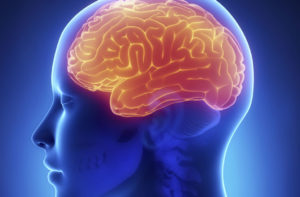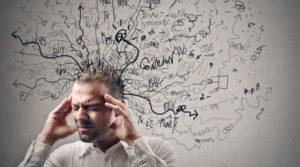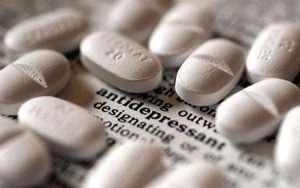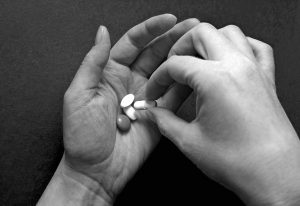Tragic overdose at University of Pennsylvania Law is part of broader trend of high levels of substance use in law school. Story is accompanied by important message encouraging law students that there are resources/opportunities for them to seek help for themselves and/or colleagues. Read it here.
T14 Law Students Death Ruled Drug Overdose
Dual Diagnosis: Why Substance Abuse Worsens Your Mental Health
Blog posted by experts from the Cleveland Clinic briefs the different factors that lead to high rates of ‘co-occurrence’, ie instances of both mental illness and substance abuse. It also clearly points out that though the problems associated with both can be overwhelming due to their overlapping, interwoven and mutually reinforcing tendencies, there are plenty of options to help treat the illness. Read the blog here.
Depression Tied to Shorter Life Span
While the title of the article is distressing, the actual findings of the study do provide hope that proper treatment can counteract the threats to longevity that mental illness poses. Read more here.
Lawyers Battle Addiction and Depression, too. Now They’re Starting to Talk About It.
After the suicides of two very talented and seemingly happy lawyers in South Florida, the Cuban American Bar Association invited Dallas based lawyer David Cuban (the younger brother of Mavericks owner Mark Cuban) to talk about his personal struggles with suicidal depression and addiction. This Miami Herald article looks through the prism of Cubans personal struggle to examine some of the major problems affecting the legal profession. Read the full article here.
How to Prevent Stress From Shrinking Your Brain
 Have you ever felt so stressed out and overwhelmed that you can’t think straight? We now know that prolonged stress or trauma is associated with decreased volume in areas of the human brain responsible for regulating thoughts and feelings, enhancing self-control, and creating new memories. A new research study, published in today’s issue of Nature Medicine, is a first step in uncovering the genetic mechanism underlying these brain changes.
Have you ever felt so stressed out and overwhelmed that you can’t think straight? We now know that prolonged stress or trauma is associated with decreased volume in areas of the human brain responsible for regulating thoughts and feelings, enhancing self-control, and creating new memories. A new research study, published in today’s issue of Nature Medicine, is a first step in uncovering the genetic mechanism underlying these brain changes.
Depressed People’s Brains are More FragmentedIn this study, conducted by Professor Richard Dumin and colleagues from Yale University, scientists compared the genetic makeup of donated brain tissue from deceased humans with and without major depression. Only the depressed patients’ brain tissues showed activation of a particular genetic transcription factor, or “switch.” While each human cell contains more than 20,000 genes, only a tiny fraction of them are expressed at a given time. Transcription factors, when activated, act like light switches, causing genes to be turned on or off. This transcription factor, known as GATA1, switches off the activity of five genes necessary for forming synaptic connections between brain neurons. Brain neurons or nerve cells contain branches or dendrites that send and receive signals from other cells, leading to interconnected networks of emotion and cognition. The scientists hypothesized that in the depressed patients’ brains, prolonged stress exposure led to a disruption of brain systems involved in thinking and feeling. Depressed brains appeared to have more limited and fragmented information processing abilities. This finding may explain the pattern of repetitive negative thinking that depressed people exhibit. It is as if their brains get stuck in a negative groove of self-criticism and pessimism. They are unable to envision more positive outcomes or more compassionate interpretations of their actions.
Glucocorticoids Damage Brain Neurons
The stress response involves activation of a brain region known as the amygdala, which sends a signal alerting the organism to the threat. This results in activation of the HPA (hypothalamic-pituitary-adrenal) axis and release of a cascade of hormones, including cortisol, widely regarded as the quintessential “stress hormone.” While short-term cortisol release prepares the organism to sustain “fight or flight” and fend off an attacker, long-term exposure appears to cause brain neurons to shrink and interferes with their ability to send and receive information via branches called dendrites. In animal studies, under chronically stressful conditions, glucocorticoids such as cortisol can remain elevated for long periods.
Traumatic Experiences Can Shrink the Hippocampus in Those Who Don’t Recover
This finding is another piece of the puzzle regarding how stress and prolonged distress may impair our ability to think in creative and flexible ways. Research in both mice and humans has demonstrated an association between stress exposure (foot shock in mice, life events in humans) and shrinking of the hippocampus – the brain center responsible for forming new, time-sequenced memories. Studies in women with PTSD resulting from childhood sexual abuse and Vietnam veterans with PTSD have shown 12-26 percent decreases in hippocampal volume, relative to those without PTSD. In another study, patients recovered from long-term major depression showed a 15 percent decrease in volume of the hippocampus, compared to non-depressed patients.
Major Life Stress Damages the Prefrontal Cortex
In addition to hippocampal shrinkage, major life stress may shrink brain neurons in the Prefrontal Cortex (PFC), the brain area responsible for problem-solving, adaptation to challenge, emotional processing and regulation, impulse control, and regulation of glucose and insulin metabolism. In a study of 100 healthy participants conducted by Dr. Rajita Sinha and colleagues at Yale University, and published in the journal Biological Psychiatry, those with more adverse life events had greater shrinkage of gray matter in the PFC, compared to their less-stressed peers. Recent major life events, such as a job loss, make people less emotionally aware while life traumas, such as sexual abuse, seem to go further, in damaging mood centers that regulate pleasure and reward, increasing vulnerability to addiction and decreasing the brain’s ability to bounce back.
Summary
While the evidence is not yet conclusive, these studies suggest that prolonged exposure to stress can shrink the brain, both via the damaging effects of cortisol on brain neurons and by disrupting expression of genes that facilitate neuronal connections. This raises the question of whether there is anything we can do to prevent such damage. Since we can’t always control how much we are exposed to financial, relationship, or illness stress, are there preventive activities we can do to maintain cognitive resilience so we can continue to deal effectively with the stressors? It is not known if we can reverse the damage by these methods, but we may lessen it and make our brains more resilient to stress.
Brain-Enhancing Activities to Combat Stress
While the below list is not exhaustive, the three activities below have enhanced brain functioning in controlled studies.
Take a Daily DHA Supplement – DHA or Docosahexaenoic acid is an Omega-3 fatty acid that is a central building block of brain tissue. DHA is thought to combat the inflammatory effects of cortisol and the plaque buildup associated with vulnerability to Alzheimer’s disease. According to Dr. Mehmet Oz, in one study, a dose of 600mg of DHA taken daily for 6 months led the brain to perform as if it were three years younger.
Exercise Most Days – In studies with mice exercise led to a more improved performance on cognitive tasks than exposure to enriched environments with lots of activities and stimulation. Exercise leads to increases in BDNF or brain-derived neurotropic factor, a substance that strengthens brain cells and neuronal connections. BDNF is also thought to promote neurogenesis or the creation of new brain cells from existing stem cells in the hippocampus. Although these effects can’t be studied in living human brains, researchers have found increases in BDNF in the bloodstream of humans following workouts.
Do Yoga, Meditate, or Pray – These activities can activate what scientist Herb Benson at Massachusetts General Hospital calls “the relaxation response,” which lowers blood pressure and heart rate and lowers subjective anxiety. Benson and scientists from a genetics institute showed, in a recent study, that inducing the relaxation response can beneficially alter the expression of genes involved in inflammation, programmed cell death and how the body handles free radicals. The effects shown were in the same genes implicated in PTSD and depression. According to Jeffery Dusek, Ph.D., co-lead author of the study, “Changes in the activation of these same genes have previously been seen in conditions such as post-traumatic stress disorder; but the relaxation-response-associated changes were the opposite of stress-associated changes and were much more pronounced in the long-term practitioners.”
About the Author
Melanie Greenberg, Ph.D. is a licensed Clinical Psychologist and expert on Mindfulness and Positive Psychology. Dr. Greenberg provides workshops and speaking engagements for organizations, life, weight loss, or career coaching, and psychotherapy for individuals and couples. Visit her website: http://www.drmelaniegreenberg.biz
This article originally appeared in Psychology Today.
The Blues Is Depression. Should You Treat It With Pills?
What people refer to as the blues is usually depression. Depression, or the blues, is an unpleasant emotional state characterized by what therapists refer to as “the negative cognitive triad.” That’s 1) negative thoughts about oneself, which are the voices of your inner critic harping on you for what you supposedly have done wrong, should have done differently, and on and on 2) negative thoughts about others that lead you to see what you don’t like in them instead of heeding their virtues and enjoying them, creating relationship problems and 3) negative thoughts about the future.
Some people describe the blues, and also depression, as feeling like there’s a dark cloud over you. Others refer to depression as seeing the world through dark glasses. Feelings of hopelessness and helplessness are another indicator.
How can you get rid of your blues and your inner critic by treating the underlying depression?
There are four main strategies:
- Change your feelings.Take pills or use one of the newer treatment methods that change your bluesy mood by changing your inner body chemistry and brain functioning.
- Change your thoughts. Eliminating the inner critic may get rid of the depressed, bluesy feelings.
- Change your actions. Get exercise. Go out and be with people. Express more gratitude. Do acts of kindness.
- Identify and address the problem that initially triggered your depressed feelings and thoughts. Find a new solution and both the negative feelings and the negative thoughts will evaporate.
Why do people take antidepressant medications?
There are four main reasons why people who may be distressed by something in their lives end up defining their depression as an illness and taking medication.
First and foremost, depression is a terrible feeling that sufferers sorely want to get rid of.
Second, most folks have not been fully informed of the medications’ downsides. I’ll elaborate on drug dependency below. In addition, these medications can cause serious weight gain, a significant drop in libido (ability to enjoy sex), hazy thinking, and a general emotional numbness that blocks feelings of joy in addition to feelings of depression.
Third, people who take the medications may not have been informed of their relatively low rate of effectiveness. They can be effective if they work, but they only work for something like about 60% of people who use them.
Fourth, most people who take anti-depressant medications have not been informed by their doctor about alternative treatment options. To a man with a hammer, the world is a nail. Physicians know about illness and prescribe medications. As psychologist Martin Seligman has explained, depression is a relatively normal, if quite unpleasant and often self-defeating, response of giving up in response to a challenging life circumstance.
What are the downsides of assuming that depression is an illness and therefore needs pills?
As mentioned above, two particularly negative side effects of medication that doctors do not sufficiently explain include potential weight gain and decreases inability to experience sexual arousal. Doctors may mention them but often do not clarify that both extra pounds and decreased interest in sex can have strongly negative impacts on personal self-esteem, on attracting a mate and on sustaining a marriage.
The other significant risk that doctors may or not fully explain is that users may have a hard time getting off these medications. When a drug company says that their anti-depressant medication is not addictive, strictly speaking, they are telling the truth. A strict clinical definition of an addictive substance or activity is one that induces both dependency and craving. Antidepressants do not induce craving. Over time they do, however, make users drug dependent.
Craving is a familiar feeling to anyone who has fallen in love. The intense sexual desire that drives someone in love to find every way possible to be near the object of their desire is a craving. Someone who craves alcohol similarly may wake up in the morning already urgently wanting a drink.
What does “drug dependent” mean? Drug dependency is the state a body goes into when it has adapted to the presence of a chemical to the point that the body requires steady doses of the substance to maintain normal functioning. We are all, for instance, chemically dependent on water.
Our society is highway-dependent. Many of us have become accustomed to having highways that enable us to drive to work from the suburbs. Having bought a house in the suburbs on the assumption that we can take the highway to work, we have become highway dependent. It’s unlikely that anyone has a craving for highways. Many of us though have become highway dependent.
If you for some time have been taking an antidepressant medication, the odds are that your body has become drug dependent. That means that if you should decide today that as of tomorrow you will no longer take the medication, starting tomorrow, you are likely to discover that without the pills that you normally take your body will plunge into a serious depressive state.
Does this depression mean that you need after all to stay on your meds because the pills are all that have stood between you and the depths of despair? Not at all. To the contrary, this depression means that your body has become dependent on the antidepressant pills. Is this addiction? No, but it is drug dependency.
I am not saying that no one should ever take antidepressant medication. They do help some people. Some people experience relatively few to zero negative side effects. My point is just that if you are considering taking these medications, or have for some time been using them, you deserve accurate information about the factors to take into account in your decision, including information about other treatment options.
Here are six vital points to consider.
1) There now are multiple excellent alternatives to medication for working your way out of depression, including various kinds of talk therapies such as CBT, energy therapies such as Bradley Nelson’s Emotion Code and Body Code, acupuncture, exercise, electrical stimulation of the brain, the visualization you can download for free from my website, or read about how to do on one of my other blogposts, couples therapy, and more.
2) Depression is induced by a situation in which you have experienced insufficient power. If you close your eyes and picture whom or what you may feel angry at, you will see an image of the trigger person or situation. Fix that situation, and your depression will be likely to go away.
3) If your doctor is recommending medication as a short-term fix, use the pills until you feel better. Use your renewed energy to address the power-loss situation. Then begin the medication-weaning process asap.
4) Wean slowly. Consult your prescribing doctor for an appropriate weaning schedule for the particular medication that you are taking.
5) Be aware that research has shown that the most powerful way to overcome depression and keep it far from you, in the long run, is the combination of therapy and medication. Medication alone and psychotherapy alone have very similar effectiveness rates, but medication has an impact more quickly, and psychotherapy tends to have more longer-lasting impacts.
6) There is a visualization exercise that you can do with a therapist, a friend, or on your own that may help you conquer the depression in just a few minutes. See my posting on A New Treatment for Depression.
6) In my clinical experience, I find that most depression is a response to relationship problems. Look into marriage education, couples counseling, or a combination of both to upgrade your relationship. These treatment routes can make you a double winner. You can both end the depression and simultaneously gain a vastly more gratifying marriage or romantic partnership.
Susan Heitler, Ph.D., a Denver Clinical psychologist, is an author of multiple publications including From Conflict to Resolution for therapists, The Power of Two and poweroftwomarriage.com for couples who want to strengthen their relationship. Dr. Heitler’s most recent book is Prescriptions Without Pills, with a free companion website at prescriptionswithoutpills.com.
The Untold Story of Dallas D.A. Susan Hawk
She had always dreamed about being Dallas County district attorney. But as her career took off, her personal life was falling apart—divorce, pain pills, thoughts of suicide. After two months of treatment, she says she’s ready once again to serve. Is she up to the job? Read the News
New York City Finds One in Five Adults Has Mental Health Problems
Reuters reports, “At least one in five adult New Yorkers, or about 8.4 million residents, suffer from depression, substance abuse, suicidal thoughts or other psychological disorders every year, according to a report released on Thursday ahead of Mayor Bill de Blaiso’s new mental-health initiative.” Read the News
Lawyers, Depression and Substance Abuse
From the website Attorney at Work, a great Q&A from James Kelleher, a Licensed Professional Counselor in Arizona, and Brian Cuban, a lawyer who has been open about his struggles with depression, substance abuse and other mental health issues. Read the Blog
Can Creativity Help Depression? An Interview with Carrie Barron, M.D.
Dan: Why did you write The Creativity Cure?
Carrie: I felt that the solutions out there for people with anxiety and depression were partial solutions, incomplete remedies. The way we live now causes stress for many people – the pace, the lack of rest or leisure, the relentless striving. Our technological, cerebrally focused culture has taken us out of our bodies and ourselves. Addiction to devices causes an imbalance and a malaise. When you are tied to a device 24-7 you may not be experiencing the fullness of all 5 senses, the things that make you feel energized. The primal satisfaction of making things and using the hands are slowly slipping away from us. For wellbeing, we have to make a conscious effort to maintain them. When my patients make and fix things, they feel better. Research shows that manual effort and creativity are antidotes for malaise. The Creativity Cure was written to help people find another way.
Dan: I deal with lawyers with depression and other professionals that are on their phones and computers a lot. What kinds of things would you recommend that they do with their hands for physical?
Carrie: It’s about getting out of your head. There are many cerebrally oriented people, but “ I think therefore I am” (Descartes) may not be the answer in the current culture. It is really becoming I think therefore I’m not. Too much thinking at the exclusion of physical and manual activity can make us depressed. Physicality, creativity and using your hands – – cooking or washing cars or crafting, painting walls or using watercolors — honor anatomical intent. Long ago manual action in everyday life was necessary for physical survival. Now we need these actions for psychological survival.
The need to create is primal. Paint a wooden board or do Legos with your child. Do that thing you were always drawn and do it clumsily, imperfectly. You don’t have to have any experience as an artist or a maker of things. You don’t have to have a fine result. You can just explore, begin and build. The beauty is in the inner experience. Research has shown that meaningful hand use decreases depression.
Dan: In your book, write about the unconscious mind. What do you mean by that?
Carrie: The unconscious mind, the deepest most hidden layer of our mind houses our , primal self, our instincts, our intuitions and our truth. The unconscious is a treasure trove of clues about our natural self, our unique self. We can get in touch with the deepest layer of our mind via dreams and seemingly random thoughts. Noting where our minds naturally drift helps us learn about where we need to be and what we need to do. The unconscious is a very powerful resource.
Dan: What is our unconscious trying to tell us for people who suffer with anxiety and depression?
Carrie: Depression can have many different causes: biological, situational, genetic or hormonal. It can also be the result of trauma. Self-knowledge and insight – knowing what resides in your unconscious mind – helps with depression because as the saying goes, the truth sets us free. Talking to a pastor or a mental health professional can elucidate information that moves you forward. Understanding yourself: who you really are, what your instincts are or what you are actually upset about is key for positive change. Sometimes you think your concern is one thing and your deeper self tells you that it is another. Following unconscious clues helps you live more truthfully and happily.
Dan: You mentioned “clues” from the unconscious. Can people that are dealing with anxiety and depression unearth these clues themselves? If a person did receive such clues, how would a person know, without talking to a therapist, know what to make of these clues?
Carrie: Writing is helpful. Keep a journal. Take walks, try yoga, breathe, self-reflect, fiddle with paint, doodle, just let. Important material bubbles up when your mind slows down. Be curious and wonder, “Who am I that I love that, what does this leaning say about me, how can I this passion be part of my regular life?” Paying attention to the feeling that accompanies certain thoughts can help you. Certain involvements can make you unhappy but they are habitual so you just keep on. Acknowledging your true inner responses enables you to change. Breaking through denial is key.
Dan: In my work helping lawyers with burnout, anxiety and depression, many of them that seem to contact me are middle-aged. Do you find that a lot of the people, the clients you see are coming to you in midlife?
Carrie: Yes, and midlife can be the best time of life. Loss and disruption, while initially causing depression or anxiety, can lead to positive inner transformation. If we learn to seek pleasure, solace or a feeling of elevation from friendships, family, creativity, and tending to those we love, we are empowered. If you are dependent on an outside institution for your self-esteem, you are less in control of your life and more vulnerable. Define yourself; don’t let it come from the outside.
Dan: I’d like to follow up on a point you make in your book when you talk about people not being in contact with their physical bodies and a visceral since of being alive. I spoke recently with Richard O’Connor, a psychologist in New York City who wrote the book Undoing Depression. He said that depression really wasn’t really about the emotion of sadness – – but about the absence of all emotion. Is that something that you see with the depressed patients you treat?
Carrie: I think it was Andrew Solomon, author of The Noonday Demon: An Atlas of Depression, who offered that beautiful juxtaposition: the opposite of depression is vitality – – not happiness. That really captures it.
Dan: In your book you make a distinction. You indicated that The Creativity Cure is a good fit for people with mild to moderate depression anxiety, but maybe not major depression. Why?
Carrie: For those who suffer from major depression and feel that their depression is well managed, The Creativity Cure is a great option for finding more vitality. Those who at baseline have mild to moderate depression and find that meds do not help enough can discover ways to unleash creativity and happiness in the book. It takes some motivation, but once you get going, you will have more energy and a greater number of happy moments.
Dan: What percentage of your patients would you say depression plays a role in their maladies for which they’re seeing you?
Carrie: Eighty percent.
Dan: Wow – -that many. And to actually put The Creativity Cure into effect, how long do you generally work with somebody to get to the point where they can do it on their own?
Carrie: We start right away by finding out as much as we can about who that person is and what makes him or her feel alive. We think about what is working and what is not, why certain choices were made and ways to redirect the self. Through the Five Part Prescription: Insight, Movement, Mind Rest, Using Your Own Two Hands and Mind Shift people can uncover their true leanings and find more vigor, inspiration, passion. For positive change, integrate the methods into your lifestyle over several weeks. Little steps! True change is all about a little at a time and building.
Dan: In your career as therapist, have you treated lawyers with depression?
Carrie: Yes, yes.
Dan: Have you found anything about their life style that contributes to their depression?
Carrie: I think its three things for lawyers, especially those in high-pressure positions. My client Marnie comes to mind. She is a 28 year-old lawyer who has to give up her personal life at the drop of a hat when she is needed. It is tough. Number one, she is often exhausted because 17 -hour days are not uncommon. Number two, there is a lack of autonomy because this 17 -hour day can be thrust upon her at anytime and continue for weeks. Marnie, professional, committed and with good attitude, has to be available in the moment, late nights, on weekends.
But, compliance takes a toll. It makes her depressed to be in the office and not see sunlight. Not being in control of her time is hard. Even if the work is interesting, she has to give up other important involvements. Marnie feels lonely and isolated because she has little opportunity to be with old friends or to develop new ones. We are working on ways she can maintain friendships, even in text message or email shoot-outs if an in- the- flesh visit must be delayed.
Number three is that living in your head all the time, no matter how brilliant you are, is not healthy. Smart as a whip with facts and numbers, Marnie garners much more pleasure from aesthetics. She likes design but has not felt free enough to develop this interest. Colors, shapes, proportions – thinking about these things makes her happy. It is a sensual, visual way of moving through the world. A big part of the treatment is making her interest in design part of her ongoing life.
I think lawyers in general are really smart people who are great at using their minds. They have been reinforced for this all their lives, but for a richer, higher, happier state, many of these cerebral people need to get out of their heads and start using their hands. Go into a creative world. Balance mind, hands and body.
Dan: I have given many talks around the country on the topic of lawyer and one of the things I like to say is that lawyers have the most active fantasy lives of most professionals I’ve ever spoke to, where they dream of doing something else than lawyering. Can those be clues that would fit in with The Creativity Cure?
Carrie: Fantasizing is a sign of mental health. It’s a good thing. Learning about your inclinations through daydreams might lead you to change your life in a big way or make it better in small ways. Tiny steps allow for big changes because they foster consistency and this builds a new self in a solid way. If you’re interested in learning how to make beautiful cupcakes you can do that for an hour on the weekend. Play guitar, write poems, tend tomatoes in a vegetable garden and do it for a few minutes a day. Start small and make it part of you. Keep dreaming and keep doing. Contentment is about maintaining an identity that integrates your creative
Built by Staple Creative












